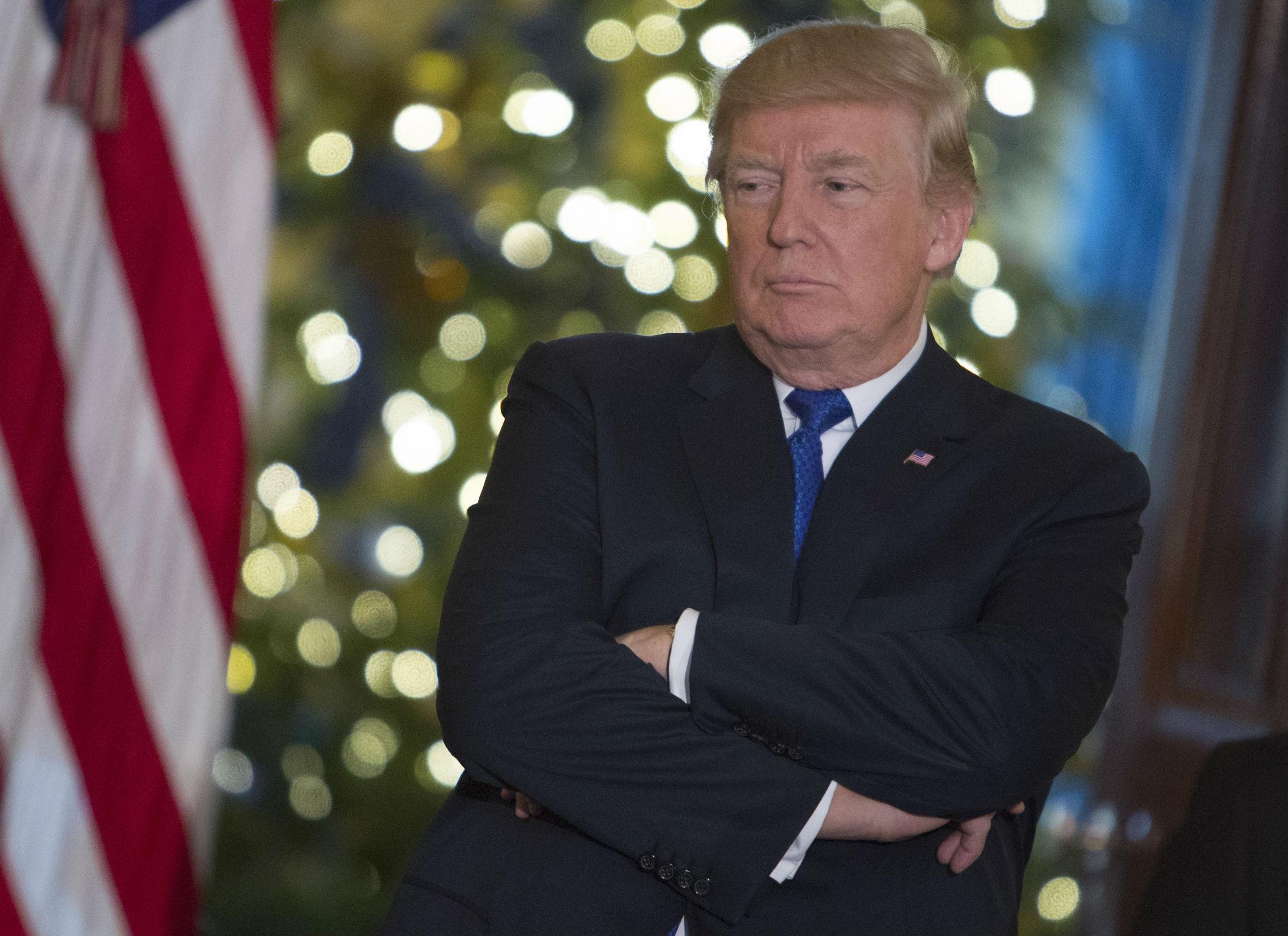Donald Trump's biggest challenges in 2018: From the Russia investigation to fixing healthcare
Investigations into alleged ties between Russia and the Trump campaign will also continue to shadow the administration

Donald Trump has had a bumpy first year as President, and 2018 may not be any smoother.
While it looks like Trump could succeed in rewriting the US tax code before the year is out, for most of 2017 he struggled on the legislative front – particularly when it came to reforming the US healthcare system. His frequent feuds with members of Congress, including those in his own political party, didn’t seem to help the situation.
His performance on the international stage may not have been any better. Over the course of 2017, Trump made several decisions that that were spurned by world leaders and appeared to escalate conflicts rather than mitigate them.
Here are some of the issues he faces next year.
Russia investigations
The federal and congressional probes into alleged ties between Russia and the Trump campaign advisers will continue into 2018, and is likely to be a headache for the President. Having started as a look into Russian meddling in the presidential election, a situation that multiple US intelligence agencies agreed upon, has morphed into a all-encompassing issue that has dogged the President’s first term in office. Trump has insisted for months that the investigations are nothing more than “fake news”.
But despite the President’s claims, Special Counsel Robert Mueller has already secured multiple indictments and guilty pleas, so much so that there have been suggestions that Trump may look to fire Mueller. The President has dismissed such talk, and with Mueller said to be looking into any possible evidence of obstruction of justice over Trump’s firing of James Comey, the former head of the FBI who had been leading the federal investigation before the special counsel, any such action would seem unwise.
Trump’s lawyers are keeping a careful eye on the situation, while there have been calls for the probe to end by at least one member of his legal team in the wake of Michael Flynn pleading guilty to lying to the FBI. More drama related to the Russia investigations is expected in 2018.
Healthcare
Following the surprise election of a Democrat in the Alabama Senate race, the President’s chances of repealing and replacing Obamacare may have all been extinguished.
Republicans already failed several times this year to pass healthcare legislation through the Senate with a 52-48 majority. In 2018, thanks to the election of Doug Jones, their margin for error will be even smaller, at 51-49. However, it is likely an issue the White House will not want to let lie, given as it was such mainstay promise of Trump’s campaign.
Middle East
Earlier this month, Trump recognised Jerusalem as the capital of Israel – as well as announced plans to move the American embassy to the holy city – a decision that Palestinian President Mahmoud Abbas said disqualified the US from sponsoring the peace process between Israel and the Palestinians.
Other Arab leaders also condemned the move as protests began to flare across the Middle East. The decision could potentially derail the peace initiative that Trump’s son-in-law, Jared Kushner, is leading. Trump has suggested he is after the “ultimate deal” when it comes to peace between Israel and the Palestinians, but the first challenge will be getting both sides back around the negotiating table. That already looked a long shot before the Jerusalem announcement, but White House officials have said they are confident of being able to get some movement once the dust settles. Whether bringing Israel further onside is the answer to that is a huge gamble by the President.
State Department
Also in December, Secretary of State Rex Tillerson admitted to the US diplomatic corps that the State Department doesn’t have any “wins to put on the board” after the first year of the Trump administration. But “diplomacy is not that simple”, he added.
Employee morale has been low over the past year amid widespread concerns about his planned overhaul of the State Department. Several top department posts and ambassadorships also continue to remain vacant. Dozens of countries do not currently have a Senate-confirmed US ambassador in place, including key allies such as South Korea, Jordan and Saudi Arabia.
During a town-hall meeting, said workers offered suggestions for overhauling the department, its structure and technology. The next step is implementing those changes, he added.
But it is unclear whether reported tension between the President and his Secretary of State will get in the way of Tillerson being able to lead the agency. Along with alleged disagreements with Tillerson over certain foreign policy matters – including the Iran nuclear deal and the Jerusalem decision – Trump has indicated a preference for solving issues with military might rather than diplomacy.
Mid-term elections next November
With the election of Jones, it’s even more likely to be a dramatic and vicious battle for control of the US Senate and House of Representatives next year.
Democrats now only need a net gain of two seats to win a majority in the 100-member upper chamber. Meanwhile, the party needs a net gain of 24 to retake control of the 435-member House.
If Republicans lose a majority in either chamber, it could be nearly impossible for the President to get any legislation through Congress. A flip in control of the House could also increase the likelihood of an impeachment vote – especially if information learned in the Russia investigations may give rise to an impeachable offence.
Join our commenting forum
Join thought-provoking conversations, follow other Independent readers and see their replies
Comments
Bookmark popover
Removed from bookmarks